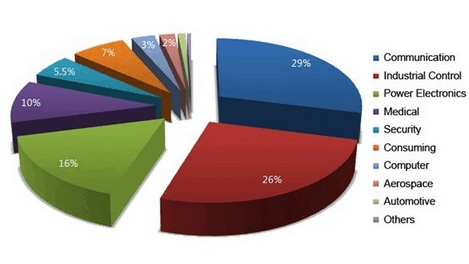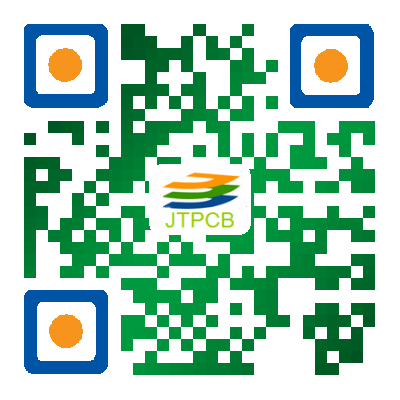Applications of Printed Circuit Boards

1. Lighting Applications
LEDs with aluminum-based printed circuit boards very desirable for a number of applications and industries. Some of the more prominent applications of Aluminum PCB LEDs include:
Telecommunications: Telecommunications equipment often uses LED indicators and displays, and because of the surrounding machinery, the improved heat transfer ability of aluminum-based LED PCBs is extremely useful in this application. Improved durability and decreased weight also make these aluminum PCB LEDs quite desirable within telecommunications applications. Not only that, but aluminum PCBs are commonly used in other components of telecommunications equipment as well, including filtering appliances and high-frequency amplifiers.
Automotive: You can also find aluminum PCB LEDs in cars on indicators, in headlights and brake lights, and other applications. The durability, longevity and relatively low price makes these aluminum PCBs ideal within the automotive industry. Their applications don’t end at LEDs either – aluminum PCBs are commonly used within electronic regulators and power controllers.
Computer: LED displays and indicators are becoming increasingly common within computer applications, and the heat sensitivity of computer machinery makes aluminum PCB LEDs the ideal solution. In addition to LED applications, computer parts like power devices, floppy drives and CPU boards are commonly use aluminum PCBs because of their ability to handle and transfer heat.
Medical: Lighting tools used in surgeries and medical examinations commonly use high-powered LED lights, and these LED lights often use aluminum PCBs. This is primarily due to the durability and heat transfer capabilities of aluminum PCB LEDs — this ensures medical equipment is functioning properly regardless of the number of patients cycling through a medical office. In addition to lighting tools, medical scanning technology often uses aluminum PCBs as well.
2. Consumer Electronics
Consumer electronics are the devices we use daily, such as smartphones or computers. Even the newest models of refrigerators often include electronic components. Within every one of these devices is a PCB.
Due to the high volume at which these consumer electronics are manufactured, the amount of PCBs produced to control them must be equal in quantity. These high-volume PCBs have low per-unit cost, keeping the price of the final product relatively small. The challenge is maintaining the uniformity and quality of these PCBs, which is why PCB manufacturers have to comply with strict industry standards and quality-control measures to ensure that every consumer electronic functions as expected.
3. Medical Devices
Electronics contributes significantly to the health-care industry, functioning as diagnostic, monitoring and treatment devices. The medical applications of these electronic devices continue to grow as electronics evolves to become more efficient and dense, leading to endless new possibilities.
At the heart of these medical devices are PCBs. PCBs within the medical industry are highly specialized in order to fit the unique constraints of medical devices. In many medical applications, a small package is needed to meet the size requirements for an implant or emergency room monitor. For this reason, medical PCBs tend to be specialty high-density interconnect PCBs, also referred to as HDI PCBs. Medical PCBs may also be made with flexible base materials, allowing PCB to flex during use, which can be essential for both internal and external medical devices.
Because of the health implications associated with them, medical PCBs are held to higher standards than most other PCB types. Repeatability and reliability are two essential qualities medical PCB suppliers must achieve, in addition to compliance with stringent medical regulations.
4. Industrial Applications
Dashboards, Engine Management Systems (EMS), power supplies, in car entertainment, fuel regulators, heater controls, and satellite navigation.
5. Automotive Applications
Dashboards, Engine Management Systems (EMS), power supplies, in car entertainment, fuel regulators, heater controls, and satellite navigation.
6. Aerospace Applications
The aerospace industry requires printed circuits with high reliability in extreme conditions, such as satellite PCBs that must perform in space or circuits on a commercial passenger jet.
JieTeng Electronics provides printed circuit boards that offer a wide range of materials, composites, and construction that are very effective in the aerospace industry.
High temperature laminates, copper and aluminum substrates can perform very well in these challenging environments. Anodized aluminum can be utilized to eliminate the effects heat induced oxidation. Aluminum substrates combined with thermally conductive pre-pregs gives the designer performance with weight advantages.
|
Shenzhen JieTeng Precision Electronics Co., Ltd.
Contact Person: Sophia Wen
Mobile:13510797526
Q Q: 3342625352
Phone:0755-23500787
Fax: 0755-27099486
|

|
文章关键词:电路板应用范围 PCB Application